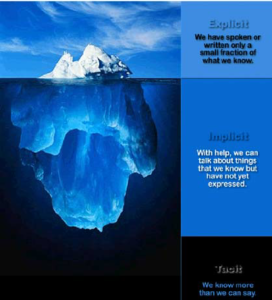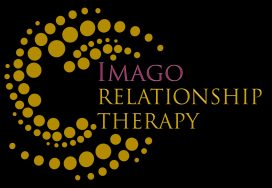Thich Nhat Hahn wrote, “Usually when we hear or read something new, we just compare it to our own ideas. If it is the same, we accept it and say that it is correct. If it is not, we say it is incorrect. In either case, we learn nothing.”
In the conundrum of being human we cling to the life raft of stories that have worked for us for years. Some stories portray us as the hapless Victim: our parents were alcoholics, we were bullied at school, we don’t do such and such because …
Some of these stories give our lives a heroic quality that lifts us and provokes us to remember our Greatness: the great great grandfather who inherited the apple orchard he tended as a slave from his slaveowner, a descendant of ancestors who arrived on the Mayflower. We were our mother’s favorite son. We inherited our father’s business savvy.
We can “Ohm” ourselves into the Power of Now, do yoga, meditate, say affirmations until the end of days that we are OK. But if our narrative about ourself is negative and … on the repeat button, we will live quietly in a polluted emotional and psychological sea.
 Inner transformational work requires the courage to strip naked. Our past will insist on us being open, honest, and vigilant if we are to understand why we stonewall our best friend, why we cheat in every relationship, overreact in the workplace, jump from relationship to relationship. Inner transformation and change require us to broaden our tunnel vision – to open our eyes as we trip over the dusty emotional baggage from our past that clutters the hallway of every new relationship.
Inner transformational work requires the courage to strip naked. Our past will insist on us being open, honest, and vigilant if we are to understand why we stonewall our best friend, why we cheat in every relationship, overreact in the workplace, jump from relationship to relationship. Inner transformation and change require us to broaden our tunnel vision – to open our eyes as we trip over the dusty emotional baggage from our past that clutters the hallway of every new relationship.
The one constant we bring to all our relationships is ourselves. Many psychological theories inform us that much of ourselves is incarcerated—locked up in the unconscious –our hunger for love, our shame, our worthlessness wander like old gypsies in exile.
Our relationships will expose our own “issues with life, intimacy, social media, the President, our boss, our partner, etc.” Most of us have a love-hate relationship with looking in the mirror and fearlessly examining ourselves. We are afraid to look-long … fearful of what we see … fearful of how we may feel.
If we are out of touch with how we feel about ourselves we will say something like, “My husband cannot show his emotions” as we unintentionally diminish and confine him to the small oppressive box that we live in ourselves. Moving from a place of stuckness into a place of hope, new possibilities and vitality takes courage and commitment, and commitment.
To look back makes us wobbly and out of control. Neale Donald Walsch says, “Move forward with no second-guessing, no guilt trips, and no hesitation. [Our] purpose is to recreate [ourself] anew in each moment.”
But we have to contend with our unconscious. What I mean is that our mind accepts whatever we believe is our truth, the limiting ideas about the world we have ingested over the years and uttered in moments of fear. Our brains store our memories in files marked “explicit memory,” which are all the conscious memories, the Who, What, Where and When, the recall of scenarios and characters. Explicit memory is basically what we already know about ourselves and others stored away in the hippocampus area of the brain.
 But we also store a foggy, abstract design or “implicit memory” in the amygdala. The foggy memory of our emotional climate is always unconscious and unintentional.
But we also store a foggy, abstract design or “implicit memory” in the amygdala. The foggy memory of our emotional climate is always unconscious and unintentional.
The latest research in brain science suggests that if we are not given enough time or space to process our experiences, our emotional resonances will remain locked, incarcerated in the amygdala, like unexploded bombs … activated in our daily interactions. Turn on the news or read social media posts and you will see exactly what I am talking about.
It is that unconscious smog in the present moment that drags our energy into the past, clutters our minds with circular, ruminating thoughts and anxious, fearful conditioning, so that we are only able to shine like 20 watt light bulbs instead of 100 watt … never fully present in the Now.
When we still our minds and really hear something new from each other, we may find an echo within ourselves that resonates with a new way of being in the world. It takes an act of will and enormous courage to be fully present to ourselves and to the Other. John Bradshaw says, “When we are present, we are not fabricating inner movies, (making up shit about folks believing it’s true). We are seeing what is before us.”
I challenge you and me to make spiritual space for ourselves each day. Commit to watching our thoughts and words vigilantly. Commit to listening with empathy and compassion when our partner, friend, boss, child expresses a frustration or a desire. Commit to accepting our responsibility in the mess we find ourselves in and doing our bit to repair the ruptures in our relationships.
We can heighten our awareness of our self-talk – the babble of criticism, shame, judgment and the fear-mongering, by letting go of our ego; that’s when we can work at truly loving ourselves so that we are able to give and receive love with all our heart.
I heard the gathering of intention and focus described so beautifully by a colleague: “Until one is committed, there is hesitancy; the chance to draw back is always ineffectiveness.”
There is one fundamental truth, the ignorance that kills countless ideas and good plans—that moment one definitely commits oneself and then [the Divine] moves too.
May [the Divine] move for and through you and me today.
Blessings & peace,
Paula





